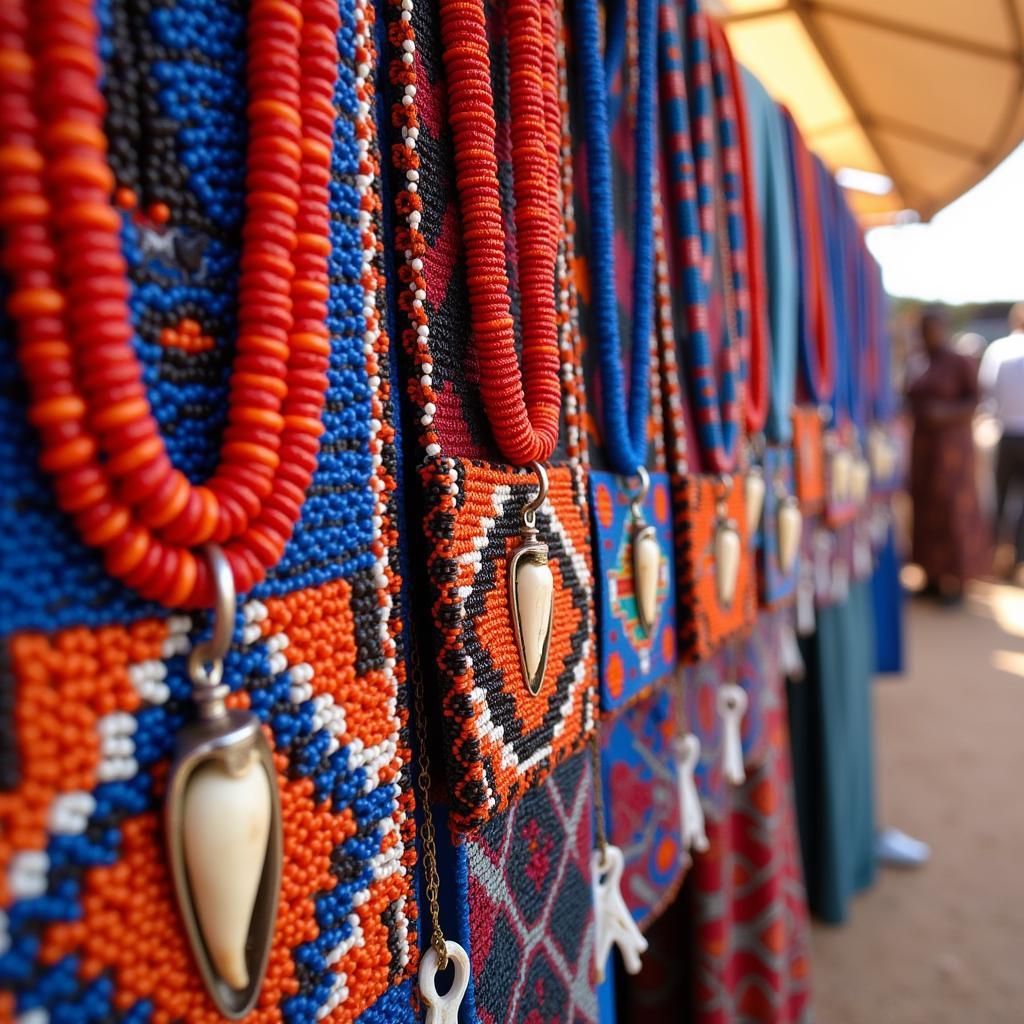Exploring the African Landscape Through Literature
African Landscape Literature offers a powerful lens through which to understand the continent’s rich history, diverse cultures, and complex relationship with the natural world. From the sweeping savannahs to the dense rainforests, African landscapes have inspired countless writers, poets, and storytellers, shaping narratives that reflect both the beauty and the challenges of life on this vibrant continent.
The diverse landscapes of Africa have deeply influenced its literature. Whether it’s the vast Sahara Desert, the majestic Mount Kilimanjaro, or the vibrant Congo Basin, these settings become more than just backdrops; they become characters in their own right, shaping the narratives and influencing the lives of the people within them.
The Power of Place in African Landscape Literature
African literature often explores the profound connection between people and their environment. The land is not merely a setting, but a source of identity, spirituality, and cultural heritage. For example, Chinua Achebe’s “Things Fall Apart” vividly portrays the Igbo people’s relationship with their ancestral lands, highlighting the spiritual significance of the natural world. This deep connection is a recurring theme in many works, demonstrating how the land itself shapes cultural practices, beliefs, and even social structures.
Many authors use vivid imagery and descriptive language to evoke the beauty and power of the African landscape. From the vibrant colors of the marketplaces to the quiet stillness of the desert night, African literature brings these environments to life, immersing the reader in the sights, sounds, and smells of the continent. Think of the evocative descriptions of the Niger Delta in Ken Saro-Wiwa’s “Sozaboy” or the lush forests of the Congo in Ngugi wa Thiong’o’s “A Grain of Wheat”.
Beyond the Picturesque: Exploring Complex Themes
While African landscape literature often celebrates the beauty of the continent, it also grapples with complex themes such as colonialism, environmental degradation, and social injustice. Many writers use the landscape as a metaphor for the struggles and triumphs of the African people. For instance, the desertification of the land in some works can symbolize the erosion of traditional values or the impact of political turmoil.
African books to read provide insightful perspectives into these complex issues. The landscape becomes a stage upon which these narratives unfold, reflecting the resilience and strength of the African spirit in the face of adversity.
How has colonialism impacted depictions of African landscapes?
Colonialism significantly impacted the way African landscapes were portrayed, often exoticizing or othering them. Many early European writers focused on the “wild” aspects of the continent, perpetuating stereotypes and overlooking the rich cultural tapestry of the land and its people. Contemporary African writers have reclaimed these narratives, offering authentic and nuanced perspectives on their own landscapes.
African Landscape Literature: A Window to the Soul of Africa
African american artwork often reflects similar themes of connection to place and cultural heritage, although in a different context. Exploring both can provide a richer understanding of the power of landscape in shaping artistic expression.
African landscape literature provides a unique window into the soul of the continent. It showcases the diverse ecosystems, celebrates the resilience of its people, and explores the complex relationship between humans and the natural world. From ancient oral traditions to contemporary novels, these stories offer a powerful testament to the enduring power of place.
African amrican literatur provides further exploration into the diverse voices and experiences shaped by both African and American landscapes, offering valuable insights into themes of identity, history, and social justice.
What are some key themes explored in African landscape literature?
Key themes explored in African landscape literature include the relationship between humans and nature, the impact of colonialism, environmental challenges, and the search for identity in a rapidly changing world. These themes are often intertwined and explored through vivid descriptions of the physical landscape, which serves as both setting and symbol.
Conclusion
African landscape literature offers a powerful and evocative exploration of the continent’s diverse environments and the people who call them home. By understanding the connection between the land and its stories, we gain a deeper appreciation for the rich cultural heritage and complex realities of Africa. Exploring this genre opens up a world of captivating narratives, inviting us to connect with the heart and soul of this remarkable continent.
Expert Insights:
Dr. Abena Oforiwaa, Professor of African Literature at the University of Ghana, Accra, states: “African landscapes are not just picturesque backdrops; they are living, breathing entities that shape the narratives and lives of the people within them.”
Baba Diop, renowned Senegalese author and environmentalist, adds: “The land is our ancestor, our history, and our future. It is our duty to protect it and to tell its stories.”
Professor Chinara Mutizwa, Zimbabwean historian specializing in oral traditions, notes: “Through stories passed down through generations, the African landscape becomes a repository of cultural memory and a source of enduring wisdom.”
FAQ
- What is African landscape literature?
- Who are some prominent authors of African landscape literature?
- How does African landscape literature differ from other forms of nature writing?
- What are some key themes explored in this genre?
- Where can I find more resources on African literature?
- How does the landscape influence character development in African novels?
- What role does oral tradition play in shaping African landscape literature?
Related Questions and Further Reading
- Explore the impact of climate change on African landscapes in contemporary literature.
- Discover the role of women in preserving traditional knowledge about the environment.
- Learn more about the intersection of mythology and landscape in African storytelling.
For further insights into African American authors and fiction, you can visit african american authors fiction.
When you need support, please contact us at Phone Number: +255768904061, Email: kaka.mag@gmail.com or visit our address: Mbarali DC Mawindi, Kangaga, Tanzania. We have a 24/7 customer support team.



